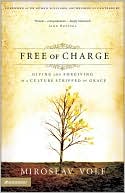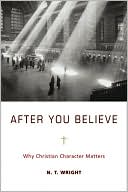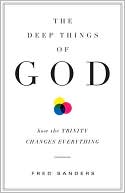" I hated all my toil in which I toil under the sun, seeing that I must leave it to the man who will come after me, and who knows whether he will be wise or a fool? Yet he will be master of all for which I toiled and used my wisdom under the sun. This also is vanity. So I turned about and gave my heart up to despair over all the toil of my labors under the sun, because sometimes a person who has toiled with wisdom and knowledge and skill must leave everything to be enjoyed by someone who did not toil for it. This also is vanity and a great evil. What has a man from all the toil and striving of heart with which he toils beneath the sun? For all his days are full of sorrow, and his work is a vexation. Even in the night his heart does not rest. This also is vanity." (Ecclesiastes 2:18-23, ESV)
Again with transparent honesty, the Preacher reveals a great sorrow that torments his heart. How can it be that he can work skillfully, carefully, wisely, and diligently, and then leave all he has worked for to a fool? Or at least there is a potential that he will leave it all to a fool. He will never have the opportunity to enjoy all that he has amassed and possibly be tormented with the realization that his heir will squander it all. This, says the Preacher, is a great evil. A great evil? What else do you call it? What kind of justice is this? So much for the conviction that hard work pays off. It pays, but not to you. It pays your irresponsible heir who has never worked a day in his life.
Whether or not you are tracking with the Preacher here, at least you must commend his willingness to speak directly and transparently. How many people are willing to ask these hard questions? The vogue today is simply to ignore such thoughts. Read lazy. I realize I risk the charge of being over critical, but I don’t know what else to call it. It’s only the entire significance of the universe. How can we not care? And the only answer I have is that it takes too much work to care. Here I could slip into bemoaning the intellectual erosion facilitated by a culture obsessed with entertainment, but I’ll spare you the diatribe. Too much work, and I want to check out a Brian Reagan video on You Tube.
Another way to avoid these difficult questions is with the ever so popular reply - “mystery.” I like mystery, and I think there is a lot of it. Even in this book that asks tough questions in attempt to answer them, eventually much is left in mystery. But mystery can be a cop out and often is. It can become the blanket statement for all and every difficult question. What is the meaning of life? Mystery. Who is God? Mystery. Why should I care about anything? Mystery. Why should I seek to live virtuously? Mystery. Sometimes I wonder whether this default to mystery does nothing more than manifest a modern plague. What C.S. Lewis called “men without chests.” A refusal to answer or even face the despairing questions of our own existence, or at least to face them with any conviction. Nietzsche may have been mad and Camus may be depressing, but at least they had guts. So does this Preacher. And I think so should we.









No comments:
Post a Comment